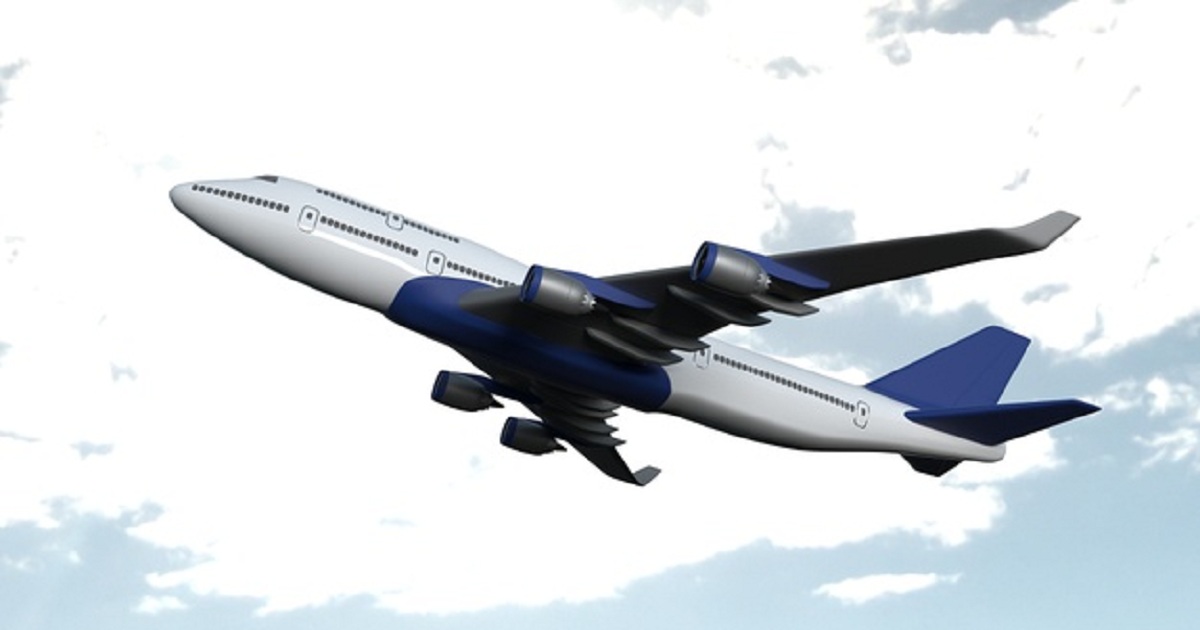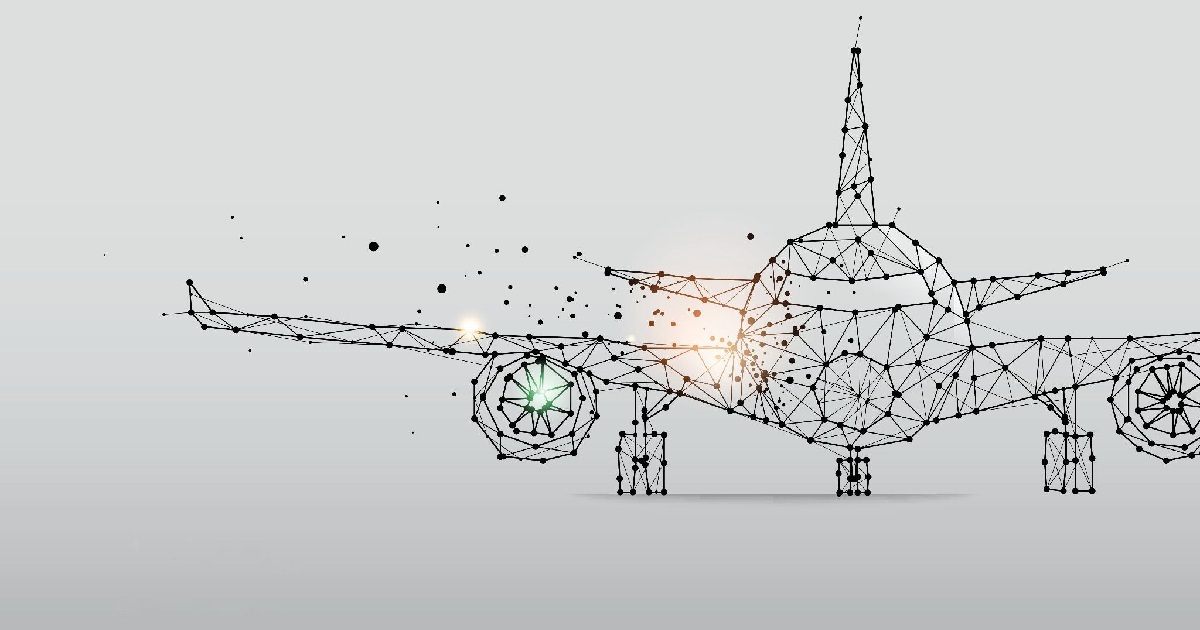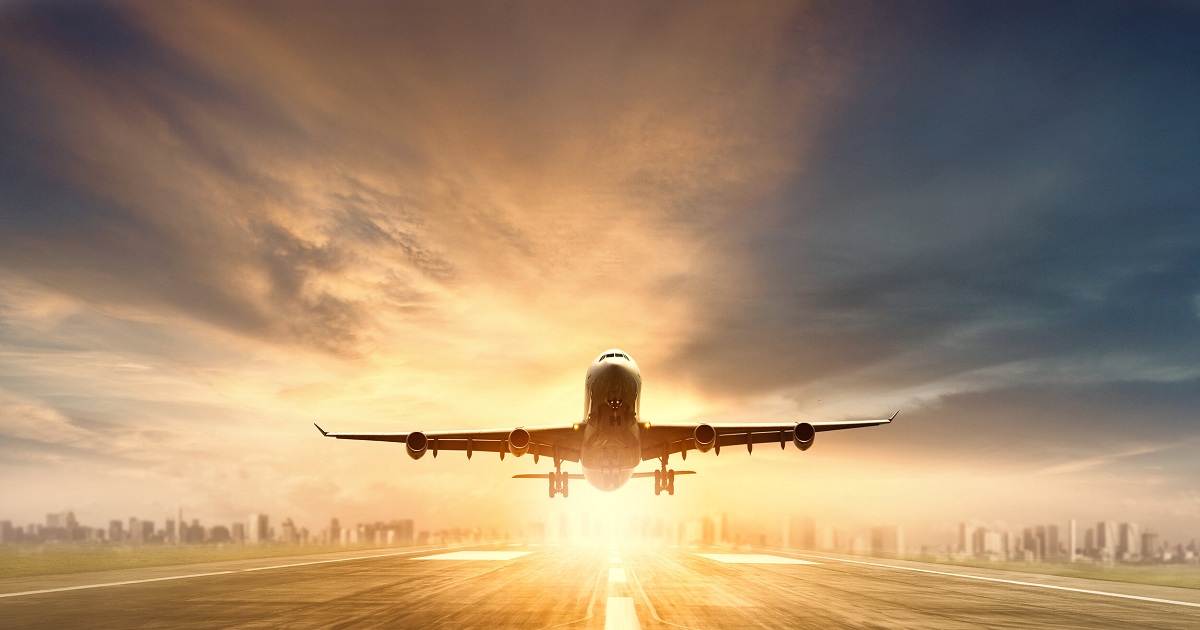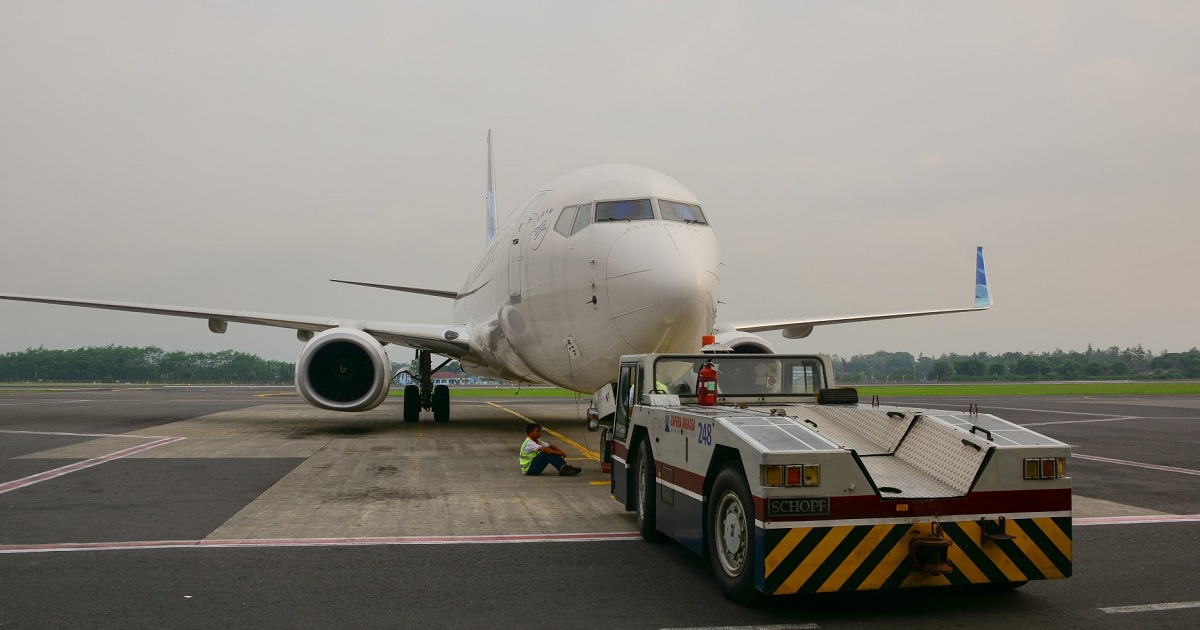
Air Transport
Article | July 6, 2022
There’s been a lot of talk lately about airlines around the world beginning to favor smaller aircraft. Not just amid the pandemic but for the foreseeable future as well. The debate was given fuel when Lufthansa’s CEO made comments about potential down-gauging of its fleet ahead. But have we really entered the era of smaller airplanes for good?
Many have argued that even when demand for air travel does return there will be less of it overall because of a precipitous and permanent drop in business travel. And beyond that, even where demand does exist, it will be for convenient, point-to-point service, not on A380s via big hubs – as smaller planes emerge that are capable of flying farther and people shy away from big, crowded airports and the hassle of connecting. All of which calls for smaller planes. I’ve argued recently that this seems a little hasty. Nevertheless, the jury is out, and as they say – only time will tell.
Have smaller planes taken over flying?
One thing we can look at is whether the notion that smaller planes rule the day holds true at major airlines right now. And pulling some Flightradar24 data we can see that this has been happening – mostly. The headline takeaway seems to be that bigger planes do still have their place, but for obvious reasons smaller wide-bodies have proven more desirable on many global routes during the past year.
Lufthansa dropped its Very Large Aircraft quickly
If we look at Lufthansa’s data, the trend is very clear right from the beginning of the pandemic. The A380 and the 747s (both -400 and -8I) took a definitive hit beginning in March 2020. That was it for the A380 and the 747-400 for good, it seems. The small rebound in A380 flights recorded in recent months were storage-related. And since the pandemic started, it’s clear that the smaller A330 has been clearly favored, taking up nearly double the percentage of flying it had at Lufthansa pre-pandemic.
What’s most interesting here is that the 747-8I did come back, in some weeks to pre-pandemic levels. That’s quite a big plane. It is probably hard to fill these days. But it is Lufthansa’s flagship now – it has a First Class cabin and it can carry quite a bit of cargo. As a result it kept flying for a while on the bigger US routes like LAX. However recent dips in demand, and the winter season, saw the smaller and more fuel-efficient A350 come in to replace it on many routes. As I write this the Lufthansa 747-8I is in flight on just two routes – Mexico City (MEX) and Buenos Aires (EZE) to Frankfurt (FRA).
If I were to take a guess, I’d say we continue to see the 747-8I for some time on these bigger routes and in busier seasons. It may turn out to be one of the last options for passengers to fly a 747 a few years from now. Eventually, though, the more efficient 777X will replace it. Though Lufthansa has said it’s looking to shift to smaller airplanes overall, the 777X seems a natural fit for its big hub to hub routes. I don’t think we’ll see a day when the A350 is the largest plane in Lufthansa’s fleet – at least as long as Germany remains Europe’s largest economy.
Delta favors smaller, but only by a little bit
If we look at Delta, which also has a wide range of wide-bodies in its fleet, the picture is a little more complicated. In part that’s because initially its 777s and A350s (both of which fit about 300 seats) took over quite a lot of flying while its smaller 767s (200 to 240 seats or so) were more or less parked.
Since then, however, the 777 fleet has been retired and the 767s (both -300 and -400 series) have been doing nearly 60% of Delta’s wide-body flying. And its smallest Airbus wide-body, the A330-200, has flown much less throughout the pandemic. The A330-300, A330-900neo and A350-900 have filled in the rest of the flying, but while they were doing a majority of the wide-body flying in the first months, they’re not back to flying roughly the same percentage of Delta’s wide-body flights as before the pandemic.
It’s interesting to note that a number of 767s have been retired during this time, and A330-300s have been used to fill the gaps where necessary despite having a higher seat count. If no 767s had been retired it’s likely the total percentage of flights run with the 767 would be even higher.
What’s the bottom line?
It seems that airlines have tended to park their biggest planes, but perhaps not as drastically as some might have expected. That may have had a lot to do with cargo capacity. But cargo capacity will continue to be a consideration post-pandemic as well, so it’s not as if these planes will prove useless once things get back to normal. And if we see the boom in travel demand that some are predicting is on the way, many of these larger aircraft may see they get plenty of use yet.
Will there be less very large aircraft in airline fleets overall? Yes, probably. The A380 is all but done for except at a handful of airlines. And will smaller, long-range planes like the 787 prove popular in the years ahead? No doubt. But the bigger, fuel efficient planes like the 777X and A350-1000 will almost certainly still have their place in the sky too.
Read More

Aviation Technology
Article | June 2, 2022
Is the aviation industry finally reviving after the devastating 2020? If yes, then what will it show in the next five years?
2020 will be remembered in airline history as the most turbulent year to date. Due to the pandemic, the period brought massive changes in the airline industry—business models and customer behavior globally. As a result, regaining customer confidence and reforming business models have become a critical factor for airlines to uncloud the economic storm and remain a formidable competitor in the years of uncertainty ahead.
Technologies that were being used before the pandemic are now being studied well with vividness. The inclusion of new technologies is onboarding, which somehow sets up new aviation industry trends. These will be a timely solution to fight the ongoing economic instability and challenges pouring in.
To increase safety notions, boost business confidence, customer trust, and making airline operations more efficient, adaptability and high intelligent business outline is the new blueprint for survival and growth to happen in the next five years.
Drivers of Emerging Trends
The intention of emerging trends in the airline industry is from weak signals from a wide range of fields, including threats, technology, and potentiality to function remotely, impacting the industry’s all-over operational dynamics.
The trends are setting primarily due to the winds of change pounding the industry from different directions. Be it from technological, demographical to environmental shifts. Understanding the potential business landscape is therefore critical to ensure what the future of air travel will be.
During a study conducted by IATA, business leaders in the airline industry identified the most critical drivers of emerging trends that were probable to have an influential impact by 2035. Also, these drivers suggest bringing more and more opportunities in business models and operational models of the industry beyond 2020.
Therefore, it is the hope of all airline companies (you) that how you will be affected by future developments and how the entire business landscape will be changed by the trends discussed here. So, take advantage of the opportunities that some of these trends may give rise to.
Leading Aviation Trends to Expect
Cybersecurity
Today, the importance of cybersecurity technology in the airline industry is rising. Airlines, now being aware of the downsides of using traditional operational models, is becoming more concerned about delivering high-performance using technology.
With having well-operated cybersecurity functionality onboard, airlines are focusing on becoming more agile to scale their infrastructure. Also, in the next five years, increased connectivity between the real and virtual world, including robots, will eventually end the boundaries between virtual and physical security.
IATA’s research with the London School of Economics found that the aviation industry will invest $15 billion by 2035, thanks to connected operations.
Moreover, as cybersecurity matures, it will be seen as the most secure and scalable way of operating organizational data, and processing will be easier than before. You will have your airline documents within a secured centralized database, which will reduce silos of information that pose security risks and threats.
Biometric Technology
The pandemic, apart from bringing challenges, has helped businesses to leverage influential ideas to foster. Yes, it has made the airline industry emphasize the high usage of biometrics as a must-have technology stack. Biometrics is on the rise that can reinforce the idea of touchless operations in airports.
The airline industry forecast has laid primary focus on self-service. However, as the blend of software and technology is more in demand, applications will be more defined than before in the coming five years. The technology will allow automated checks, self-service systems using devices like mobile, tablets, and others and cover iris, face recognition, fingerprint, which will even work with PPE masks.
The industry is already making great experiences that allow businesses to conduct frictionless operations using biometric software and hardware. For example, in November 2020, Star Alliance introduced a novel interoperable biometric identity scanner platform for screening employees and passengers at airports.
AI & Big Data
Artificial Intelligence (AI) welcomed massive opportunities in transforming aviation business operations amid the ongoing crisis. This technology in the airline industry has immensely aided companies in collecting data and forming a virtual assistance environment for queries, enhanced logistics operation, security, and self-services with highly augmented reality.
A market survey reveals that 97.2% of the aviation companies are installing big data and AI together. In fact, 76.5% of airline companies are gaining the value of data collection with the help of big data and AI. Source: resources.vistair.com
AI is also being set up in terms of safety improvement initiatives and potential safety issues. In this case, Southwest Airlines partnered with NASA to build an automated system capable of preventing potential threats and breaches by using machine-learning algorithms.
Green Technology
Green technology is one of the upcoming trends in the airline industry in the next five years. The prediction is it will make novel changes in the airline industry from various directions like the workforce, shares, stakeholders, and governments.
In the green tech concept, it is the generational shift and advancement that may head the change using new tools. These would bring in notable opportunities beyond 2021.
If you observe, the pandemic has driven the agenda of sustainability in terms of climatic conditions. And you will be surprised to know that aviation has already put up a serious concern in its fossil fuel usage by 2035. Even aircraft manufacturers have begun their journey with green technology.
To clarify this, the main objective of sustainable development for the coming years is decarbonization and green technology investment.
Aviation companies like Japan Airlines and IAG are investing to bring net-zero carbon emissions by 2050, and by 2045, they aim to achieve carbon neutrality. And these, of course, are happening quickly due to digitalization.
Expecting a Sustainable ‘DIGI-TECH’ Future
As the pandemic brought downturn and slowdown in the airline industry, they have prioritized investing in digital by recognizing its importance and the optimum necessity. It is because it will be one of the significant ways for you to bring customers back and show your potential to endeavor services in a changing industry landscape.
So, technology and digital together must be supported that respects businesses’ need to invest in multiple areas of functionality. On the other side, revenue management goals also need to be focused on to gain success among competitors. And following the path of trending digital platforms will make you victorious over revenue management performance objectives. In this way, you will be in the skin of the game and would observe your company rising through the challenges over the coming years.
Frequently Asked Questions
What are the topmost technologies that will define aviation beyond 2021?
The technologies—3D printing in manufacturing, automation, and robotics are the topmost that will define how the aviation industry will be beyond 2021.
How is technology being used in aviation?
Airline operators use technology to market their services and products, advancing their software to leverage functionalities like biometrics, automation, cybersecurity, AI, big data, and more. Also, technology is being used to make safer airport operations like touchless checks to make safe for passengers.
Will the aviation industry overcome challenges?
Up until now, globally, the aviation industry is maintaining positive growth, despite prevailing challenges due to COVID-19. Technologically, it seems that the industry will foster slowly and gradually. Yet, there is sluggish growth economically due to high jet fuel prices.
{
"@context": "https://schema.org",
"@type": "FAQPage",
"mainEntity": [{
"@type": "Question",
"name": "What are the topmost technologies that will define aviation beyond 2021?",
"acceptedAnswer": {
"@type": "Answer",
"text": "The technologies—3D printing in manufacturing, automation, and robotics are the topmost that will define how the aviation industry will be beyond 2021."
}
},{
"@type": "Question",
"name": "How is technology being used in aviation?",
"acceptedAnswer": {
"@type": "Answer",
"text": "Airline operators use technology to market their services and products, advancing their software to leverage functionalities like biometrics, automation, cybersecurity, AI, big data, and more. Also, technology is being used to make safer airport operations like touchless checks to make safe for passengers."
}
},{
"@type": "Question",
"name": "Will the aviation industry overcome challenges?",
"acceptedAnswer": {
"@type": "Answer",
"text": "Up until now, globally, the aviation industry is maintaining positive growth, despite prevailing challenges due to COVID-19. Technologically, it seems that the industry will foster slowly and gradually. Yet, there is sluggish growth economically due to high jet fuel prices."
}
}]
}
Read More

Design and Engineering
Article | January 7, 2022
The pandemic has caused a deeper level of disruption, which brought the aviation industry to a standstill for months. After facing long months of hardship, what vision and steps will be for airline recovery? This is a significant concern. This would now require complete planning over some crucial areas that form the pillars of the aviation industry.
It is especially airline businesses that require a novel set of advancements to build operational confidence. As the industry is rebooting, technology is benefiting. Be it robotics, IoT, biometrics, seamless integration, automation, and more will aid businesses and their processes.
Therefore, the industry’s next vision is being set according to the evolving changes in the airline industry due to covid-19. It will establish resilience and flexibility for businesses to adapt to changing conditions while improving efficiency.
Here are the key considerations that will be seen as airline recovery curbing airline challenges to plan new avenues beyond 2021.
Collaboration
Collaboration in the aviation business landscape has been the most important consideration after the pandemic affected the industry. Keeping the vision of collaborating with stakeholders and the commercial airline industry to focus on business and customer confidence will restart operations safely.
Collaboration in the future will have a better grasp and be more efficient because of better coordination of data sources being introduced currently. Collaboration becomes even more crucial in the coming years, where you will need updated and accurate information about your business operations. This vision will enhance chances of the following aspects as well:
Customized Experience
Leading to the modifications happening in the industry, you will be able to offer customized services to customers. Advanced integration functionalities will allow forming a contactless and personalized experience to curb the challenges prevailing. Providing transparent and reliable information to customers is one of the critical aspects of airline recovery and rebooting happening now. This is why a customized experience will aid airline businesses more safely in the coming years.
Personalization
Today, airlines, governments, and stakeholders are developing best practices for the immediate future of business with a greater focus on personalization throughout the service journey. It will help attract potential customers and end the general approach, which the industry was practicing before the pandemic.
Monitoring
To design a post-pandemic business model, you can look at the types of technological solutions and processes that have already been started and would emerge beyond 2021.
It has been envisioned that airline industry analysis, coupled with monitoring, would allow businesses to manage resources more efficiently. In this way, deployment of the technology stack will be more accessible according to the need. This will strive to reduce crowds at airports and, therefore, effective management with the help of predicted monitoring will be in action.
Digital Solutions
The new normal in the aviation industry, using technology, would continue to ensure physical contact is diminished or might be eliminated in the future. Mandatory digital checks, implementation of digital platforms, contactless services, and information collected through mobile devices are some elements of the new business models. The industry's vision in the coming years is to demonstrate how it can use digital technology for transformation at scale.
Advanced Processing System
The next, the aviation industry foresees, is utilizing technology for automation, security, identity management, and robotics. Using these, you can develop attractive yet safe experiences for staff as well as customers. The advancing data processing system and management offer a seamless module for companies to handle risks, controls, handling, and tracking. The inclusion of the advanced system at the airport, airline companies will make the process function efficiently. And because of optimized coordination through automated touchpoints, chances of an increase in revenue will be higher and faster than before.
Remote Processing
The continuous advancement of airline activities will significantly support capacity limitations in the coming years. Because of this, you will have safer processing of data and information without any threats or breaches.
The pandemic has put greater focus on the need for such a flexible approach with resilience. Also, it brings urgency to the availability of technology to use while going remote so that you can provide flexibility to your employees to work frictionless.
The industry's vision in its plan is to unlock the full benefits of technology to access and initiate global coordination remotely.
A Changed Way to do Business Today—Sustainability
Companies operating in the airline business are still understanding to survive in the times of COVID-19. Being fast and evolving is the only way they realized to fight against the current situation.
The new normal is bringing changes in the airline industry post covid. This will help the industry to get back its wings to forecast and set up its next vision in the future.
Therefore, industry stakeholders need to quickly put immediate business restart efforts to focus on sustainable implementations. This will make the future actions of the aviation industry monitor and evaluate effectively well in response to the ongoing pandemic. Also, it would help them be ready to face even harsh circumstances if anytime it approaches.
Frequently Asked Questions
What are the risks to the aviation industry during COVID-19?
The level of risk is on the rise in the COVID-19 situation at present in the aviation industry. It may affect the operation, new business models, management, monitoring, and evaluation more as remote work culture is hyped.
What are the main sectors of the airline industry that need improvement?
There are limited sectors in aviation. However, the main ones that need improvement are commercial aviation and business aviation.
What are the crucial areas of operation in the aviation industry?
Flight operations are crucial, including operation control, connectivity, network, data handling, integration, maintenance planning, and software.
{
"@context": "https://schema.org",
"@type": "FAQPage",
"mainEntity": [{
"@type": "Question",
"name": "What are the risks to the aviation industry during COVID-19?",
"acceptedAnswer": {
"@type": "Answer",
"text": "The level of risk is on the rise in the COVID-19 situation at present in the aviation industry. It may affect the operation, new business models, management, monitoring, and evaluation more as remote work culture is hyped."
}
},{
"@type": "Question",
"name": "What are the main sectors of the airline industry that need improvement?",
"acceptedAnswer": {
"@type": "Answer",
"text": "There are limited sectors in aviation. However, the main ones that need improvement are commercial aviation and business aviation."
}
},{
"@type": "Question",
"name": "What are the crucial areas of operation in the aviation industry?",
"acceptedAnswer": {
"@type": "Answer",
"text": "Flight operations are crucial, including operation control, connectivity, network, data handling, integration, maintenance planning, and software."
}
}]
}
Read More

Business Aviation
Article | December 16, 2021
While countries continue to implement new Omicron-related restrictions in response to the rising number of cases globally, a majority of these are in the form of enhanced COVID testing requirements – not travel bans. As a result, travel demand for popular peak-season destinations has remained strong, and over the past few days we’ve seen a BIG INFLUX in bookings as news trickles out that Omicron may be a less severe variant.
If this continues, we expect to see another prolonged booking surge, so plan accordingly and get your requests in ASAP for best options – especially parking and hotels. While the new U.S. 24-hr testing requirement for return travel is tight, it’s not a big deal if you are prepared with an approved at-home testing kit (like Abbott BinaxNow, Qured, Ellume, etc.). Alternatively, our Trip Support Teams can help you identify testing providers abroad.
Looking ahead to your missions in 2022, you may want to consider On-Aircraft COVID Testing for your N-registered aircraft. It’ll make international COVID testing MUCH easier on you and your passengers when at-home testing kits aren’t an option.
Read More